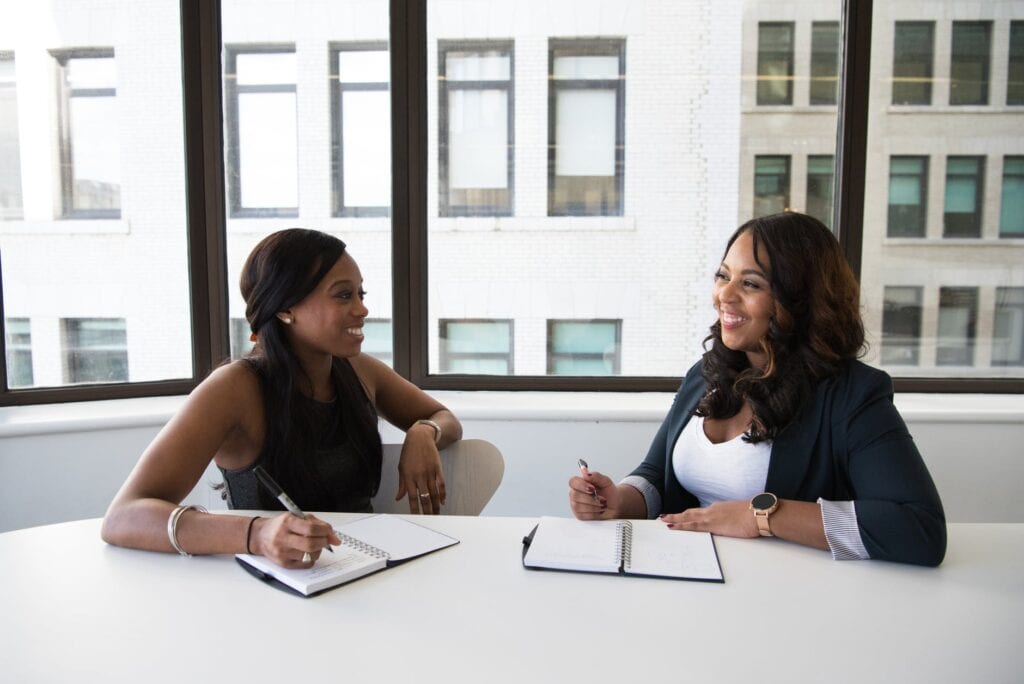You’ve just left an interview for the job of your dreams. You feel excited, a little exhausted, but mostly, you’re relieved. You can finally relax. You answered each question with confidence, and you exhibited outstanding communication skills. However, while the actual interview is now complete, the final part of the process begins the follow-up.
The actual job interview is just the beginning of a conversation. To show genuine interest and enthusiasm in the position, you must create an on-going dialogue with your potential employers. While you don’t want to be overly aggressive and irritating with following up after a job interview, going above and beyond with these simple tips will help you stand out from the other candidates.
Write a Sincere and Personalized Thank-You Note

After the job interview, the first component to the follow-up should be a personalized thank-you note. While a thoughtful email — sent no later than 24 hours of the interview— is an acceptable way to demonstrate your sincere interest in the position, it’s more meaningful to send a handwritten note through the mail. Your future workplace will be impressed with the effort you put forth by mailing a physical thank-you note, rather than if you had sent a quick email. Get to know more about it and how to do it the right way on this website.
When writing your thank-you letter, always remember to address every person you interviewed — this means that you must remember everybody’s name. Sometimes, an interview is divided into two or three phases with at least three different people, or conducted panel-style, with several people interviewing you at once. Repeat everyone’s names after meeting them and write them down as soon as possible so you won’t forget. In addition to addressing all of the interviewers, remember to include the following in the body of the letter:
● Reiterate how interested you are in the job with any relevant details on why you’re qualified.
● Thank the potential employer for their time, as they probably had to set aside an hour or two of their day, forcing them to push off work.
● If you forgot to mention any critical details about yourself in the interview, now is the ideal time to divulge that information.
● Always be as brief, friendly, and conversational as you can. Since you’ve already had the interview, you can let your personality show a little more.
One of the most effective tactics executive search Toronto employers use is interpreting the candidates’ questions. You have a right to know about the company and position just as they do you — you’ll want to know if the office environment and workload meet your expectations. Employers also want to see if you’ve researched the company and the position. If you’ve thought of any relevant questions that you failed to ask during the interview, don’t be afraid to ask them in your thank-you follow-up.
The Check-In

Writing the follow-up thank you note is the easy part — making contact after a few weeks of silence can feel a little more complicated. You might worry that checking in a few weeks later will make you appear annoying, or worse, desperate. However, you don’t have to worry! It’s entirely normal to feel that way. This secondary check-in is a standard part of the post-interview process. If you approach the follow-up check-up carefully, you’ll come off as diligent and interested.
Before you send the secondary check-in, consider the following tips:
● Wait for the established deadlines and timeframe to pass. You may have asked the interviewers about the next steps of the hiring process and when you should expect to hear back — stick to that timeline. Once that specified date has passed, then feel free to send a follow-up email to the employer.
● Don’t assume that you didn’t get the job. Often, the hiring process takes a long time to finalize, particularly if the decision-makers have a lot of work on their plates.
● In your check-in email, mention the discussed timeframe. Consider this example of language to use in the check-in note:
“Hi _____, I hope all is going well! Earlier, you mentioned that you’d be finalizing the decision for the Marketing Manager position by the end of this week. I’m eager to hear when you have an update. Please let me know if there’s anything else I can provide to assist you in your decision-making process.”
With a brief but enthusiastic email such as the one above, your potential employer will remember to do a double-take on your application and get back to you sooner than later.
Keep Communications Open

You don’t want to think about this possibility, but there is a chance that you didn’t get the job. However, that’s no reason to beat yourself up or to jump to the conclusion that the company didn’t think highly of you and consider you for the role. Even if you didn’t get the job, it might be useful to have this employer in your network. You never know when they might hire again, and with you on their radar, you could be the person they call right away.
Opening the doors of communication to a potential employer can take some finesse. Rather than viewing your relationship with the employer as a failed job interview, treat them as valuable new contact and colleague. Build a relationship by keeping the conversation going — periodically send them articles or relevant information, congratulate them on recent accomplishments, and always thank them for their replies.

Update your LinkedIn interests to reflect the positions you’d like to apply for in the future and follow their company page on LinkedIn. If you think it’s appropriate, add the recruiter or employers you spoke with during the interview or on LinkedIn. The trick is not to overdo it. Sending an article to your potential employer every day isn’t a good idea; you’ll start to become more of a nuisance rather than a likely candidate.
To gain valuable guidance on interacting with future employers, consider meeting with professional recruiters an executive search agency. They’ll meet with you to help you land those interviews you want, and provide helpful tips on the follow-up process.
Most importantly, always be yourself and provide genuine feedback and interest when following up. You’ll know that you tried your very best, and that’s all that counts.
 Imagup General Magazine 2024
Imagup General Magazine 2024



